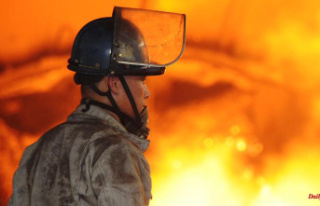The statements by the Chinese head of government are a public admission that not everything is going smoothly. China's economy is still suffering from the consequences of the pandemic. Premier Keqiang calls on the six strongest provinces to become "proactive".
According to Prime Minister Li Keqiang, China's economy must fight against "shocks beyond expectations" suffered in the second quarter. "Now is the most critical moment for economic recovery," said the prime minister at a meeting with provincial leaders in the southern Chinese metropolis of Shenzhen the day before, according to official sources. Dealing with the pandemic must be "effectively" coordinated with economic and social development "to ensure effective Covid-19 containment, economic stability and secure development".
The prime minister indirectly pointed to the lockdowns and other restrictions imposed by China's strict zero-Covid strategy, which are severely slowing down the growth of the world's second largest economy. He called on the six strongest provinces, which together account for 45 percent of economic output, to drive growth "proactively". "They should effectively implement a policy package to stabilize the economy and realize their own potential." They should also play a leading role in creating and preserving jobs. "Sluggish demand is a distinct impediment to economic activity."
The PM's call is a public admission that the Chinese economy is weak. Important economic data such as industrial production, retail sales and fixed investments again fell short of expectations in July. In order to give the economy new impetus, China's central bank had surprisingly cut certain interest rates. In the second quarter, China's economy grew by just 0.4 percent, although the government was actually targeting 5.5 percent growth for the year as a whole. The International Monetary Fund (IMF) expects only 3.3 percent in China this year.












